NEWS
15 Things You Should Never Do At A Funeral
Published
9 months agoon

Shutterstock
Navigating funeral etiquette is essential, particularly in the emotionally intense periods of mourning and loss. Understanding and honoring the traditions and protocols of these gatherings is key to showing support and empathy to the grieving family. This guide provides important advice on proper funeral conduct, addressing common questions and concerns. Following these suggestions helps maintain a respectful environment, allowing for a dignified tribute to the deceased. These guidelines are designed to assist everyone, from close relatives to distant friends, in managing the proceedings with grace and sensitivity.
Ignoring The Seating Arrangements
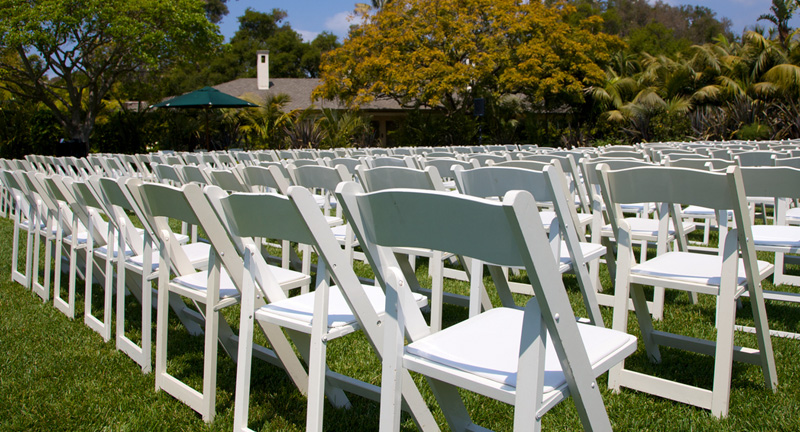
IStock
Funeral services typically implement specific seating arrangements to honor close relatives and friends by placing them near the front, ensuring they remain together during the ceremony. Ignoring these seating plans can lead to discomfort or distress among attendees. It’s essential to follow any seating protocols, whether they are indicated by signs, funeral directors, or family members. Respecting these arrangements ensures that those most affected by the loss receive the comfort and prominence they deserve during the service.
Not Offering Condolences
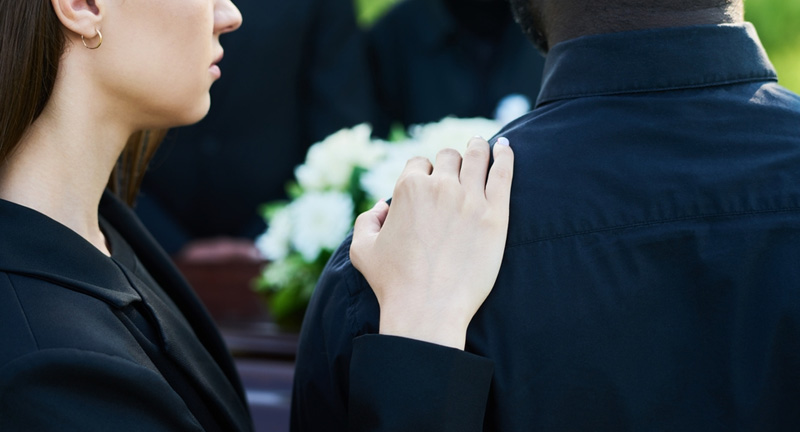
Shutterstock
Offering condolences is a critical way to show support and respect to a grieving family. It signifies recognition of their loss and provides much-needed comfort during a difficult time. Neglecting to express condolences can unintentionally come across as indifferent or inattentive. Even a simple, heartfelt condolence can significantly impact the family, providing them with comfort and reassurance when they need it the most.
Bringing An Uninvited Guest

IStock
Going to a funeral with people who were not specifically invited can create extra stress for the grieving family and disrupt the intimate atmosphere of the service. It is vital to attend only if you had a close connection with the deceased or have received a personal invitation, unless it is an open service. Reaching out to the family or confirming through the invitation can avoid misunderstandings and help ensure you honor the family’s desires during this delicate time.
Using Your Phone

IStock
Using your phone during a funeral is highly disrespectful and disruptive. It is essential to turn off your phone or switch it to silent mode to prevent any interruptions. Engaging with your device during the service not only distracts you but also those around you, taking away from the shared experience of mourning and paying tribute to the deceased. Demonstrating respect and empathy involves giving your full attention to the service’s significance.
Overwhelming The Family

Shutterstock
When a family loses a loved one, they face the dual challenges of grieving and managing the funeral logistics. It’s essential to offer condolences while also respecting their need for personal space and emotional wellbeing. Avoid overbearing behaviors and excessive demands, as these can add to their stress. A balanced approach of being present and expressing sincere, uncomplicated condolences can provide meaningful support without overwhelming the family.
Ignoring Procession Etiquette

IStock
Being part of a funeral procession involves following traditions, like sticking to a set route and keeping a respectful distance. Disregarding these norms can give the impression of disrespect towards the deceased and their family. Properly participating in the procession shows your solidarity and respect for the family’s customs and the memory of the deceased.
Arriving Late

IStock
Arriving late at a funeral is generally perceived as disrespectful and may disturb the solemn atmosphere of the event. It is advisable to schedule your arrival well in advance to ensure that you are seated before the commencement of the service. An untimely entrance can interrupt the proceedings and shift the focus away from the intended purpose of the gathering. By aiming to arrive early, you uphold the service’s dignity and ensure the event runs smoothly.
Bringing Inappropriate Flowers or Donations
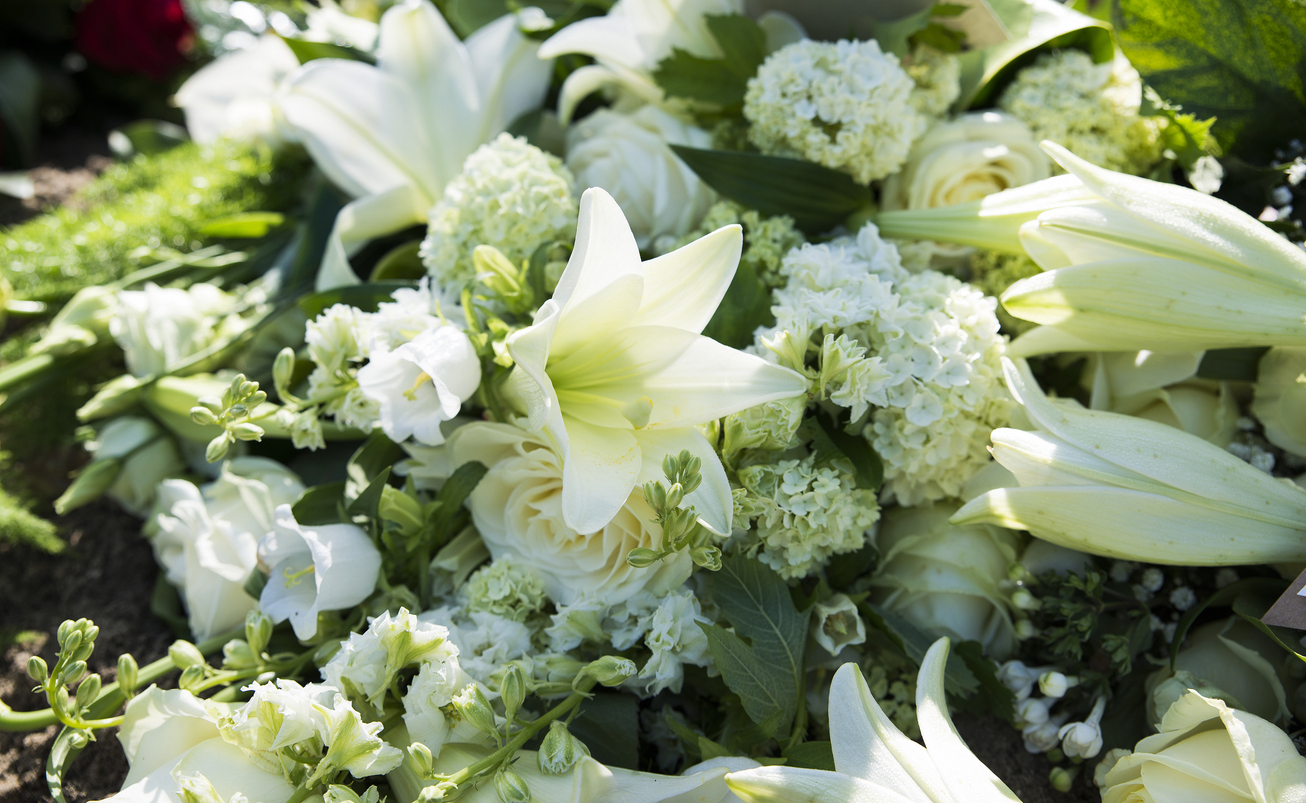
IStock
Honoring the family’s preferences for floral arrangements or donations is crucial. Many families might favor donations to meaningful charities over traditional floral tributes. Bringing items that do not align with these wishes can seem inconsiderate. Always verify the preferred method of expressing condolences, whether through flowers or donations, to demonstrate respect and thoughtfulness.
Not Signing The Guestbook

Shutterstock
Signing the guestbook at a funeral is a meaningful gesture that shows your support and presence, creating a lasting record for the grieving family. Forgetting to do so might unintentionally imply a lack of empathy for their loss. To appropriately express your condolences and solidarity, make it a point to sign the guestbook, offering a personal note that contributes to the cherished memories of the deceased’s life and legacy.
Overstaying Your Welcome

Shutterstock
A funeral reception is a time for sharing memories and offering condolences. It’s crucial to be mindful of the duration of your stay, particularly if the event is held at a private residence. Extending your visit can place an additional burden on the grieving family, who may require private time to process their loss. Departing at a suitable time demonstrates respect for the family’s emotional needs and privacy during a sensitive period.
Wearing Casual Or Flashy Clothing

iStock
Wearing casual or flashy clothing to a funeral can be seen as disrespectful to the deceased and their family. It is generally recommended to wear modest, respectful attire, often in darker shades, unless the family has specified otherwise. Choosing conservative clothing demonstrates your respect and solidarity with the grieving family, helping to maintain the solemnity of the occasion.
Eating or Drinking

Shutterstock
It is usually seen as inappropriate to eat or drink during a funeral service unless it is a specific part of the ceremony. Showing respect for the deceased and their family involves maintaining decorum and focusing on the proceedings. Refreshments, if provided, should be offered at the reception after the service, where guests can engage in social interactions in a more suitable environment.
Talking During Services
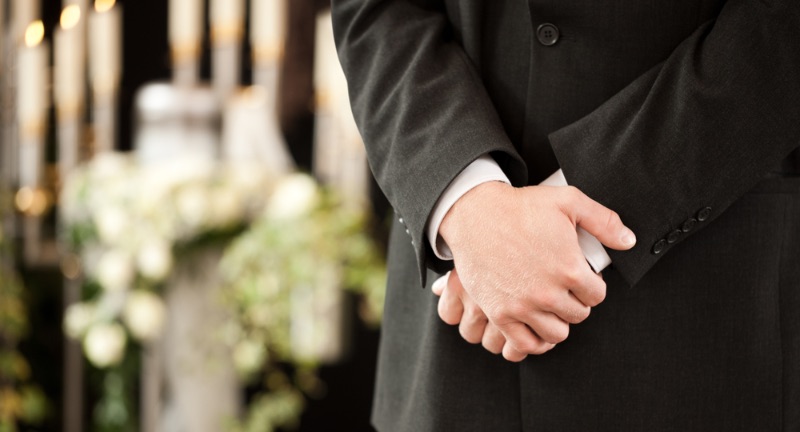
Shutterstock
Engaging in conversation during a funeral service is considered disrespectful and can lead to interruptions. It’s important to remain quiet and respectful during periods dedicated to eulogies, prayers, and silent reflection. Any discussions should be saved for before or after the service to ensure the ceremony proceeds without disturbances. This level of respect helps maintain the solemn atmosphere of the event and provides support to those who are grieving.
Speaking Negatively Of The Deceased

Shutterstock
Funerals are a time to honor and remember the deceased with respect. It is not appropriate to express grievances or speak negatively about the deceased during the event. Doing so can deeply upset the mourning family and friends. Regardless of personal feelings, it is essential to maintain a decorous demeanor. Focusing on positive memories or simply offering condolences is more appropriate to uphold the respectful tone of the event.
Dressing Inappropriately
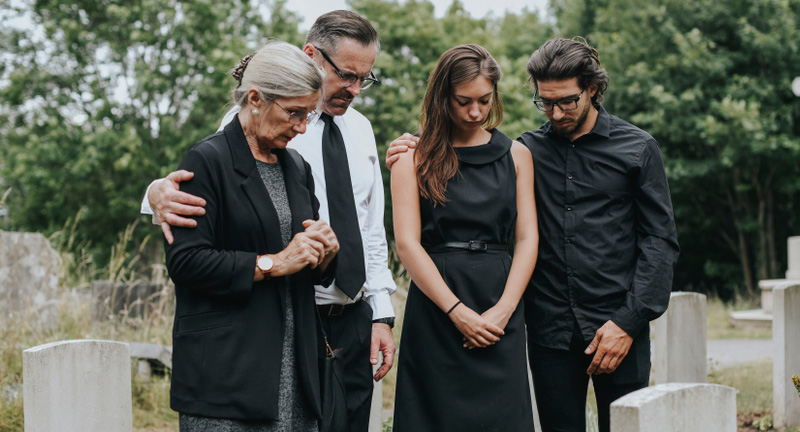
Shutterstock
Attending a funeral in casual or ostentatious attire is often viewed as a lack of respect for the deceased and their family. It is preferable to wear subdued, respectful clothing, typically in dark colors, unless otherwise specified by the family. Adopting a conservative dress code shows your respect and supports the family during their time of mourning, preserving the solemnity of the event.
Conclusion
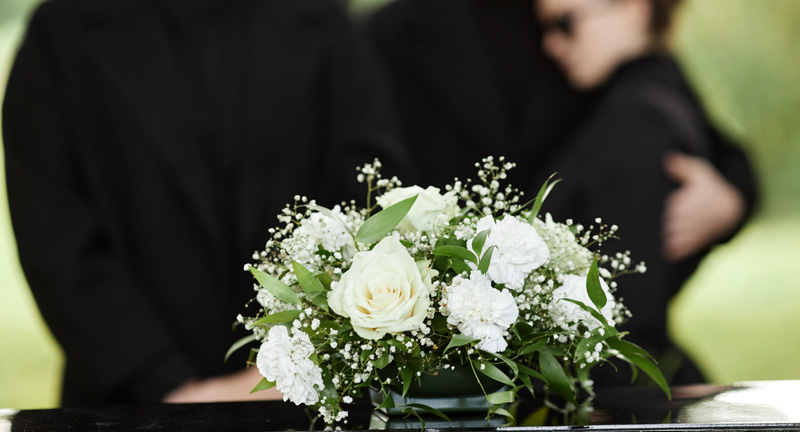
IStock
Successfully navigating funeral etiquette involves more than simply adhering to guidelines; it requires showing deep respect and empathy for those grieving. By avoiding inappropriate actions, participants help create a compassionate and reverent atmosphere that honors the deceased’s memory and life. Proper behavior at a funeral includes being attentive, sensitive, and genuinely supportive, which can make your presence comforting and respectful. It’s crucial to recognize that thoughtful gestures and respectful conduct can significantly affect the bereaved, leaving a meaningful and lasting impact.
More Money + Investing
-


15 Bad Habits Keeping You From Being A Millionaire
-


25 Epic Car Flops That Made History
-


20 Red Flags You’re Stuck in a Toxic Friendship
-


20 Sports That Are Losing Popularity At a Fast Pace
-


24 Cars to Buy Now Before Their Value Skyrockets
-


Unmasking Kirkland: The Big Brands Behind Costco’s Best Buys
-


Snowflakes and 17 Conservative Stereotypes That Drive Democrats Up the…
-


23 Intriguing Facts About the B-2 Spirit: America’s Stealth Supersonic…
-


25 Genius Staging Tips to Speed Up Your Home Sale
-


24 Items That Are Too Pricey for Shoppers Now
-


Mortgage Demand Continues to Fall Despite Drop In Interest Rates
-


Rue21 Bows Out: Another Retailer Closes All Doors
